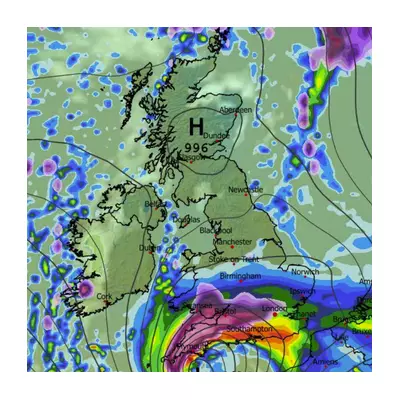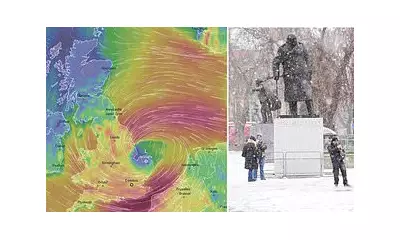
The UK is set to sizzle as weather maps turn a dramatic shade of crimson, indicating an impending heatwave that could see temperatures rocket to a scorching 30°C. According to the latest long-range projections, a blistering 'African plume' is on course to engulf Britain in mid-July, bringing a sustained period of intense heat.
Meteorologists are tracking a significant shift in the weather pattern, with high pressure building from the continent and pulling very warm air northwards from Africa and southern Europe. This pattern is expected to become established around the second week of July, potentially lasting for several days.
Regional Breakdown: Where Will Feel the Heat Most?
The heatwave is predicted to affect most regions, though some areas will experience more extreme conditions than others:
- Southern England: Likely to bear the brunt of the heat, with the highest probability of reaching 30°C
- Midlands and Wales: Expected to see temperatures in the mid to high 20s
- Northern England: Could experience temperatures well above seasonal averages
- Scotland and Northern Ireland: While less extreme, still anticipated to enjoy notably warm and sunny conditions
Timeline of the Thermal Surge
The heat is forecast to build gradually from July 10th, peaking between July 12th-15th. Weather models show a strong signal for persistent high pressure during this period, which would suppress cloud formation and allow temperatures to climb day after day.
This event could potentially rival some of the notable heatwaves of recent years, though meteorologists caution that long-range forecasts still carry some uncertainty and are subject to change as the event draws closer.
Health Implications and Preparedness
With the possibility of such significant temperature rises, health agencies are likely to issue heat-health alerts advising vulnerable populations to take precautions. The sudden spike may come as a shock to many after a relatively mixed spring, making acclimatisation more difficult.
Experts recommend preparing for the heat by staying hydrated, seeking shade during the hottest parts of the day, and checking on elderly relatives and neighbours when the high temperatures arrive.





